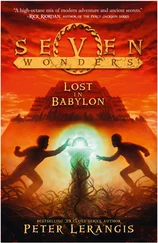“Sure,” says Urban, “I’ll tell you the moment I know anything. What would you like to know?”
“Let me know, let’s say,” Rácz explains, “about car spares. Or when someone needs a leather jacket, or something. Understand?” Urban nods. Rácz gets up. The audience is over. He has to go to the hotel, and sort out a few things. They can’t do anything without Rácz.
Silvia needs money. She has savings, but is still short. She wants to buy a used car, a white Fiat Uno. Rácz shakes his head. He doesn’t lend money, he needs it himself. He wants to go into business. But he will give her advice. Be nice to Rácz, very nice, and she’ll gradually save up the money. Anyway, Rácz thinks that Silvia should have saved more than she has. He’s often watched her through the cellar window coming and going, he adds, with a hint of bitterness. “What about the gypsy?”
“He’s not a gypsy!” Silvia counters. “He’s a doctor from Vienna.”
“I’d no idea the Viennese look like gypsies,” Rácz says. “But he could easily help you buy a car if he’s a doctor.”
“We could go on trips to the country,” Silvia tries to tempt the stoker.
“I don’t go on trips!” Rácz gets worked up. “I get enough running round the boiler-room and hotel.” Rácz does not travel anywhere. He hates travelling.
“What’s the furthest you’ve travelled?” asks Silvia.
“All the way here,” says the stoker, “to this effing city.”
“But going by car is different,” the prostitute objects.
“It’s all the same, by car or plane,” the stoker declares. Rácz never travels. He’s too busy working. He’s got duties. He came here to make money, so he will. Silvia would love to get money out of him, wouldn’t she? Well, be nicer to Rácz and she’ll get more money, too.
Anyway, Rácz feels he’s spending too much, as it is. Every time warnings come from his inner voice, Rácz silences them: you only live once. Yes, perhaps the city lights have blinded him. Who wouldn’t they blind? He’s never known this sort of life. When he goes back home and marries Eržika, he’ll have only memories left. Then he will work, bring up his children, and on Sundays go to church and a football game. On Friday nights he will go to the pub for a beer and a shot of spirits. Everyone will respect him. He knows all about the city and nightlife. Don’t anyone try to tell him about them. After all, he’s even had a striptease dancer! They’ll all envy him. They’ve never in their lives experienced anything like that and never will. Rácz can’t complain about Kišš. If it weren’t for the butcher’s stubbornness, Rácz would never have even seen the city. But still, he shouldn’t spend so much. He hasn’t saved up anything. And he could have. On the other hand, you can’t say that he’s wasted his time. He’s made investments. After all, he had to get to know the sleazy scene at the Ambassador hotel, so as to find his way about.
Now Rácz no longer eats leftovers. Every day he eats breakfast, lunch and dinner right in the hotel restaurant. He enters with panache: in his work boots, a bag full of tools over his shoulder. He has his own place. It’s reserved for him. The waiters rush to him. Rácz slurps and tears wildly at his meat. With greasy fingers he takes the cork out of a bottle of Chateau Valtice Reserve, he takes a brief look to see how much is in the bottle, and pours it down his mouth. He stomps his boots wildly on the floor. All the different cutlery round his plate drives him berserk. He never uses anything but a spoon. Waiters hover over him, passing him pepper, salads, meat, and ketchup. The entire staff surrounds his table. The guests are now used to it. They’re happy to be kept waiting. The sight of Rácz at table is not easily forgotten. Only new, inexperienced guests nervously murmur and click their fingers for service. Others try to stop them. Including the terrified personnel. They all look at Rácz with fear, as he wrestles with boar’s head in rosehip sauce. If the impatient diners aren’t stopped in time, Rácz will be disturbed and, from a table littered with spilled sauce, wine, and broken glass, turn to fix the newcomers with a look that they are unlikely ever to forget. He has only to say a word to the headwaiter and that guest will not be served. He might as well clear off, wherever he pleases. If anyone angers Rácz, everybody suffers. If they don’t want to freeze, they’ll have to pay again.
* * *
The mall between the Ambassador restaurant and the shops serves as the gypsies’ headquarters. They stand and sit there from morning till night, surrounded by their womenfolk and screeching children. They have a good life. Their organisms, genetically designed for roaming free over the wide steppes, for quick travel and modest nourishment with periods of famine, have adapted badly to a sudden change in lifestyle, and they have become fat, monstrously so. All the male and female gypsies doing business in front of the Ambassador are terribly obese. Like shapeless whales, gasping for breath, eyes popping, they move clumsily to and fro. They’re on the lookout for a tourist sufficiently stingy and foolish enough to do a deal with them. They’ll offer him more than other currency dealers. Except they pay in Polish zloty, not Czechoslovak crowns. Probably, the foreigner will notice his mistake only later, usually in his car in the car park, bragging to his wife about the wonderful deal he got. Sometimes, however, the mistake is not discovered until he tries to pay in a restaurant or shop.
The furious foreigner will run back into the mall. The almond-eyed gypsies will give him a sympathetic look. No, it wasn’t one of them, they’re good gypsies. They would have known! They won’t stand for people like that, they’re good gypsies. It must have been one of the bad gypsies. What did he look like?
The foreigner hesitates. They all look so similar that they can’t be told apart. Like eggs. Each one is fat, with a moustache, dressed in an expensive leather jacket and a green hat with a boar-bristle tassel. All the gypsy women are huge, noisy, with loudly painted faces and dyed hair. They don’t know each other that well. The foreigner should give them his address. When they find out who that cheat was, the good gypsies will force him to give it all back. They’ll send it to the foreigner. But why is the foreigner yelling at them, they’re good gypsies? He wouldn’t want the good gypsies to call for police protection? They’ve met racists like him before! They’re good gypsies and only want to help. But they can see the foreigner hates their race. So he’d better go away. They won’t have anything to do with him.
The gypsy children scurry about under their feet. When they grow up a bit, they get bored with the mall, which is illuminated only by light from the shops and by blinding neon tubes, only half of which work. They need to run around, to get fresh air. While they ask for directions to some imaginary point from any passer-by they encounter, they inconspicuously relieve him of his wallet, watch, rings and chains. The passer-by will never cease to be amazed by the incident.
When a foreigner in a car or a bus enters the car park, gypsy women race off from the mall. They run at breakneck speed, some even lose their shoes in the effort and have to go back for them. Sometimes they fight among themselves, tear each other’s hair out, and bite each other. The children gawk at them and scream in shrill voices. The gypsy men stand around, dignified in their obesity. In the summer they wear Hawaiian shirts outside their trousers, in winter they prefer expensive fine leather jackets. Fur coats are now out of fashion. (They made them look like bears going into hibernation.) They holler at each other in Romany. Sometimes they scream so loudly that their eyes seem to pop from their olive faces. When they argue about money, customers in the shops have to speak louder to be heard. Sometimes the gypsies fight. Often they use knives. The cops are in with them. The gypsies pay them off and inform on non-gypsy currency dealers.
Читать дальше












